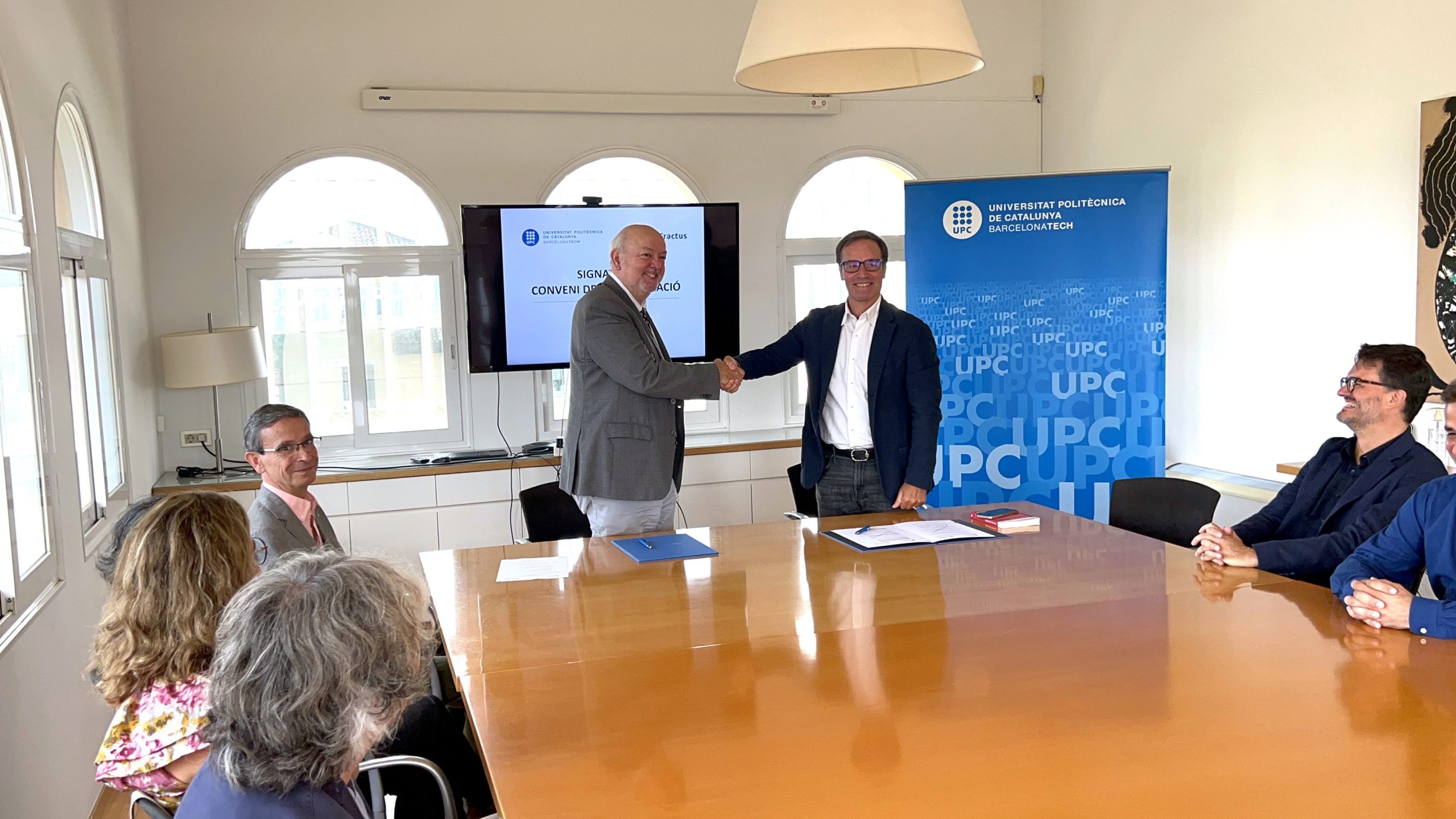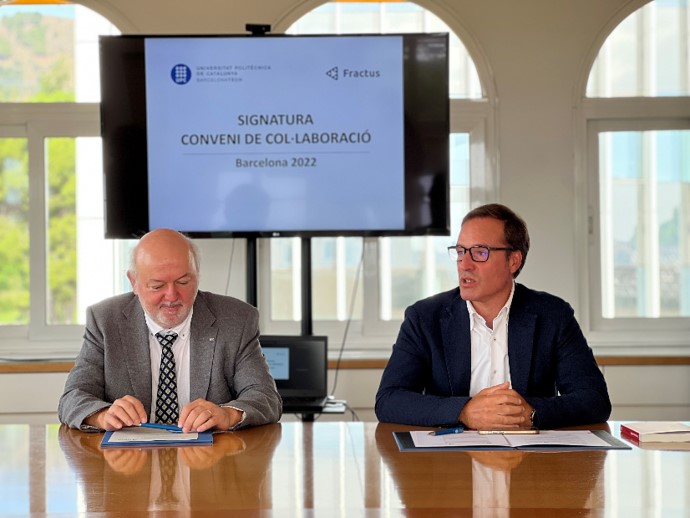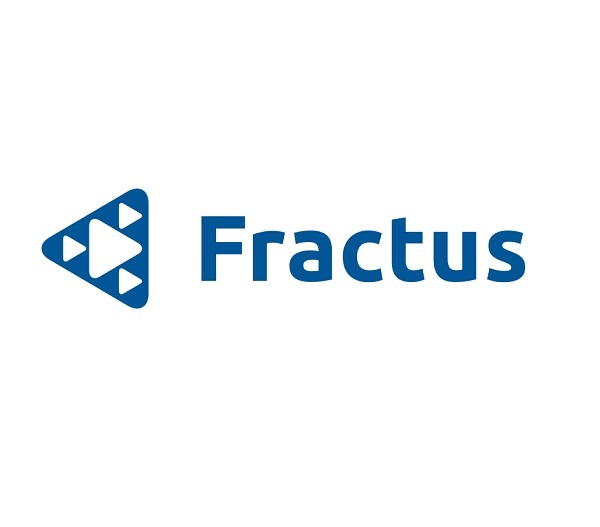Barcelona, September 14, 2022 – Fractus and the Universitat Politecnica de Catalunya – BarcelonaTech (UPC) have agreed to create the Fractus-UPC Deep Tech Hub, a center of research activities where deep tech technologies will be designed and improved, with the aim of developing disruptive technological solutions based on scientific challenges with great potential and social impact. Fractus is one of the first spin-offs that emerged from the UPC.
The Fractus-UPC Deep Tech Hub will concentrate talent development, training, innovation, research and technology transfer activities, and will actively and strategically contribute to the creation of UPC start-ups and/or spin-offs in the field of deep tech, founded on a scientific discovery or a technological innovation, with the purpose of promoting its access to the market. The deep tech field encompasses the development of disruptive solutions based on deep technologies linked to science or advanced engineering, to respond to global challenges.
The agreement, signed on September 13th, by the dean of the UPC, Daniel Crespo, and the President and CEO of Fractus, Rubén Bonet, foresees that the activities of the hub are aimed at responding to current challenges through scientific and technological advances significant, while promoting research, innovation and knowledge transfer in areas such as mobility and logistics, materials, sustainability, urban planning, information and communication, biomedical engineering and environmental and energy technologies . The emerging areas of quantum computing, photonics, artificial intelligence, cyber security, robotics, electronics and advanced materials are some of the areas on which the activity of this hub will be focused.

The activities of the hub will also promote the UPC’s R+D+I in the deep tech field through industrial doctorates, collaborations in research and innovation projects, the promotion of research lines or the development of workshops, as well as the incubation and acceleration of companies, among others. It is also planned to promote innovation challenges, prizes and forums aimed at students, as well as end-of-degree and master’s theses in this field.

Deep Tech Cluster
The UPC is one of the main deep tech clusters in Europe, with a powerful core of research groups that research and develop technological innovation in this field and from which several spin-offs and start-ups have emerged, such as Fractus. Led by Dr. Carles Puente – who is also a professor at the Telecom Engineering School of Barcelona (ETSETB) at the UPC – and Ruben Bonet, the company is a pioneer in the development of internal antenna technology for mobile phones, tablets and other wireless devices in the Internet of Things, specializing in new applications of fractal technology and other emerging technologies.
The UPC is a public research and higher education institution specialized in the fields of engineering, architecture, science and technology, and is one of the main technical universities in Europe, which is characterized by its intense penetration in the industrial and productive fabric through the transfer of the knowledge it generates to companies. Currently, it maintains links with around 2,000 companies. Each year, it graduates more than 6,000 undergraduate and master’s students and more than 500 PhDs and is one of the universities with a high job placement rate for its graduates: 93% work shortly after graduating. Likewise, the UPC is well positioned in the main international rankings. On the other hand, it is a leading university in Spain in raising funds for R+D+i projects financed by the Horizon 2020 program.
Fractus is an early pioneer in developing internal antenna technology for smartphones, tablets and other wireless Internet of Things devices and holds an intellectual property rights portfolio of more than 30 inventions protected through over 120 patents and patent applications in the United States, Europe and Asia. Among the numerous awards and honours the company has received for its innovative work, Fractus was named a 2005 Davos World Economic Forum Technology Pioneer and one of Red Herring’s top innovative companies for 2006. It also won the 2004 Frost & Sullivan Award for technological innovation and the 2010 National Communication Award of the Catalan Government in the telecommunications category. A team of Fractus inventors was finalist for the EPO European Inventor Award 2014. On November 2015, Fractus was awarded Academiae Dilecta by the Spanish Royal Engineering Academy and on April 2017 received the “European Inspiring Company Award” by the London Stock Exchange and the Elite Group.





